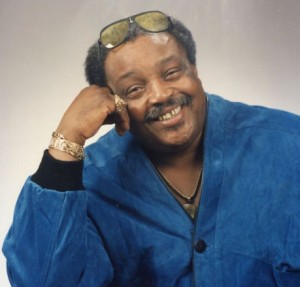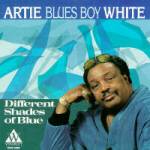 Artie “Blues Boy” White helped bridge the gap between the blues of the postwar era and the contemporary hybrid soul blues style. His thick, vibrato-heavy vocals reflected his early church roots, and he always preferred “live” instrumentation to synthesized beats and tracks, yet the rhythmic propulsiveness of his recordings and the up-to-the-minute sonic immediacy of their production—to say nothing of the brawny horn charts that often accompanied him—made clear the influence of newer, more soul-oriented stylings.
Artie “Blues Boy” White helped bridge the gap between the blues of the postwar era and the contemporary hybrid soul blues style. His thick, vibrato-heavy vocals reflected his early church roots, and he always preferred “live” instrumentation to synthesized beats and tracks, yet the rhythmic propulsiveness of his recordings and the up-to-the-minute sonic immediacy of their production—to say nothing of the brawny horn charts that often accompanied him—made clear the influence of newer, more soul-oriented stylings.
Artie White was a family man who took his Christian faith as
seriously as he took his blues; nonetheless, his onstage persona reflected the classic bluesman’s swagger. Sporting gold chains, he stood loose-limbed at the microphone with a casualness bordering on arrogance, engaging his audience in ribald repartee; his grainy baritone croon was shot through with sinewy machismo. The lyric content of his songs often seemed to confirm his image as a seasoned player, gritty and street-tough, wounded by love but still cocky and ready to let the good times roll.
In Chicago, White was as well-known for his entrepreneurial spirit as he was for his music. He operated several nightclubs between the 1970s and early ’90s, and later he launched his own Achilltown label, on which he released several CDs under his own name.
Artie White died on Saturday, April 20, 2013, four days after his 76th birthday. He represented, and continues to represent, a continuum across genres and generations, a still-vital indication that “keeping the blues alive” in the community where it was born is more than a fantasy. When his longtime friend Little Milton declared in song that “the blues is alright . . . and it’s here to stay,” he was simply reaffirming a truth that Artie exemplified, and which his recorded legacy continues to make clear.
—David Whiteis
 Buy from:
Buy from:  Buy from:
Buy from:  Buy from:
Buy from: